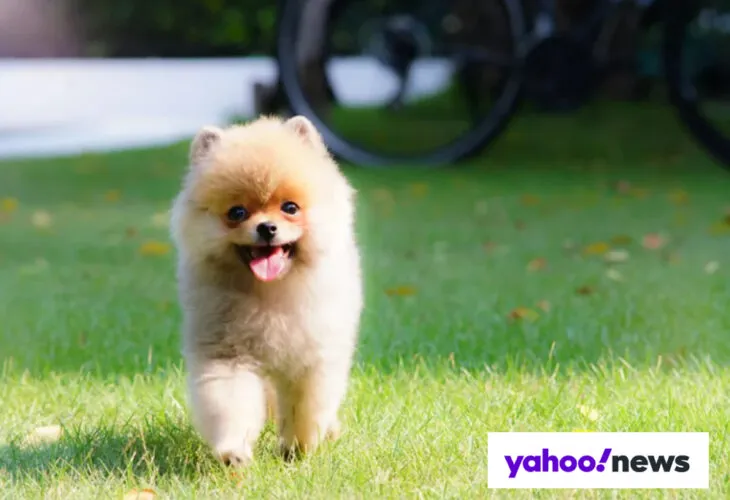As we age, the desire for companionship often grows stronger. For many seniors, a dog can be the perfect answer, offering not only affection but also a reason to stay active and engaged. While small dogs are often recommended, medium-sized dogs can also be excellent companions, providing a balance of manageable size and a personality that fits well with a senior lifestyle. But with so many breeds to choose from, finding the best medium dog for seniors requires careful consideration.
 Senior woman walking a dog in the park
Senior woman walking a dog in the park
Studies show that pet ownership benefits older adults, offering social support, increasing social interaction, and decreasing feelings of loneliness. Furthermore, dog owners tend to be more physically active, leading to lower body mass and fewer visits to healthcare professionals. Therefore, choosing the right dog breed can significantly improve the quality of life for seniors. However, the rising costs of pet care and potential overcrowding in animal shelters, emphasize the need for responsible pet ownership and adoption.
This article explores the best medium dog breeds for seniors, considering factors such as temperament, exercise needs, grooming requirements, and overall health.
Top Medium-Sized Dog Breeds for Senior Companionship
Choosing the right dog breed is crucial for a harmonious relationship. Medium-sized dogs offer a great compromise, being large enough to enjoy walks and playtime but still manageable in terms of space and care.
1. Cavalier King Charles Spaniel
The Cavalier King Charles Spaniel is known for its gentle and affectionate nature. They typically weigh between 13 to 18 pounds, making them easy to handle. Cavaliers are adaptable to different lifestyles and enjoy spending time with their owners, whether it’s cuddling on the couch or going for a leisurely walk. Their moderate exercise needs and relatively low grooming requirements make them an excellent choice for seniors.
2. American Eskimo Dog (Miniature)
The Miniature American Eskimo Dog, a smaller version of the standard breed, is intelligent, friendly, and adaptable. Weighing between 10 and 20 pounds, they are energetic but don’t require excessive exercise, making them suitable for seniors who enjoy regular walks. Their thick, white coat requires regular brushing to prevent matting, but their playful and affectionate personality makes the effort worthwhile.
3. Poodle (Miniature or Standard)
Poodles are known for their intelligence and hypoallergenic coats. Miniature Poodles stand 10 to 15 inches tall and weigh 10 to 15 pounds, while Standard Poodles are larger, ranging from 40 to 70 pounds. Both sizes are highly trainable and enjoy learning new tricks. Poodles require regular grooming to maintain their coats, but their intelligence and affectionate nature make them excellent companions for seniors.
4. Shiba Inu
Shiba Inus, known for their independent and clean nature, can be good companions for seniors who prefer a more independent dog. Weighing around 17 to 23 pounds, they don’t require constant attention but enjoy regular walks and playtime. Their grooming needs are moderate, requiring regular brushing, especially during shedding season.
5. Border Terrier
Border Terriers, with their sturdy build and weight of 11.5 to 15.5 pounds, are known for their affectionate and loyal nature. They are active dogs but don’t require excessive exercise, adapting well to a senior’s lifestyle with regular walks. Their wiry coat needs occasional brushing and hand-stripping to maintain its texture.
6. Welsh Corgi (Pembroke or Cardigan)
Corgis, with their distinctive short legs and elongated bodies, are intelligent and affectionate dogs. Pembroke Welsh Corgis typically weigh between 25 and 30 pounds, while Cardigan Welsh Corgis are slightly larger. They are energetic but don’t require excessive exercise, enjoying short walks and playtime. Their grooming needs are moderate, requiring regular brushing to manage shedding.
7. Soft-Coated Wheaten Terrier
Soft-Coated Wheaten Terriers are known for their playful and affectionate nature. Weighing between 30 and 40 pounds, they are energetic but adaptable to different lifestyles. They require regular grooming to maintain their soft, wavy coat and prevent matting.
Factors to Consider Before Choosing a Medium Dog
Before bringing a medium-sized dog into your home, consider these important factors:
- Energy Level: Choose a breed with an energy level that matches your own.
- Grooming Needs: Some medium-sized dogs have high grooming needs, while others are relatively low-maintenance.
- Training Requirements: Intelligent and trainable dogs are often easier to manage.
- Health Issues: Research common health issues associated with specific breeds.
- Living Space: Ensure your home provides adequate space for a medium-sized dog.
Responsible Pet Ownership
Owning a pet is a significant responsibility. Before bringing a dog home, be prepared to provide:
- Proper Nutrition: Feed your dog a high-quality diet appropriate for their age and breed.
- Regular Veterinary Care: Schedule regular checkups and vaccinations.
- Daily Exercise: Provide adequate exercise to keep your dog physically and mentally healthy.
- Affection and Attention: Spend quality time with your dog, providing love and companionship.
- Financial Resources: Be prepared for the costs associated with pet ownership, including food, vet care, and grooming.
Adopting from a shelter or rescue organization is an excellent way to find a loving companion while providing a home for a dog in need. Many shelters have medium-sized dogs of various breeds and ages, offering the opportunity to find the perfect match for your lifestyle.
Choosing the right medium dog breed can significantly enhance the lives of seniors, providing companionship, encouraging activity, and promoting overall well-being. By carefully considering factors such as temperament, exercise needs, and grooming requirements, seniors can find a furry friend that brings joy and love into their lives.
